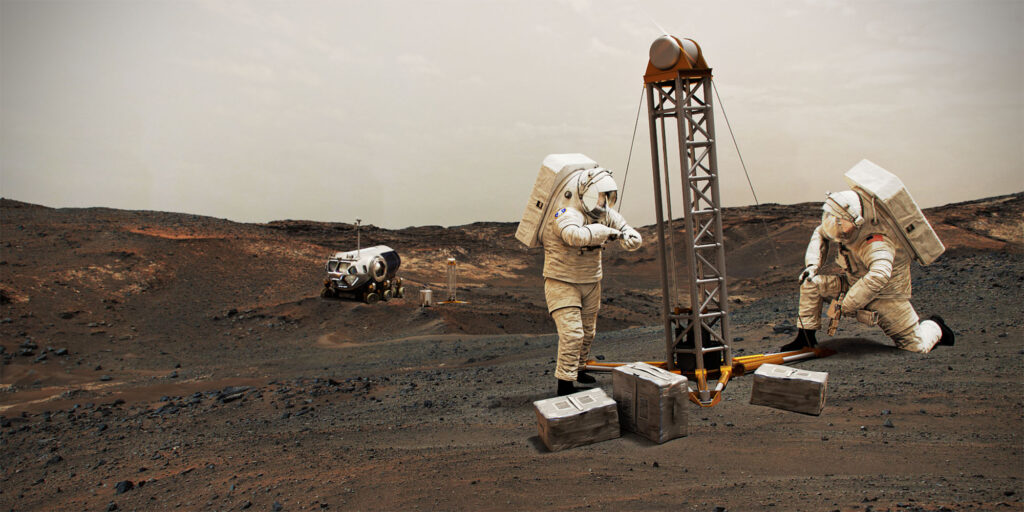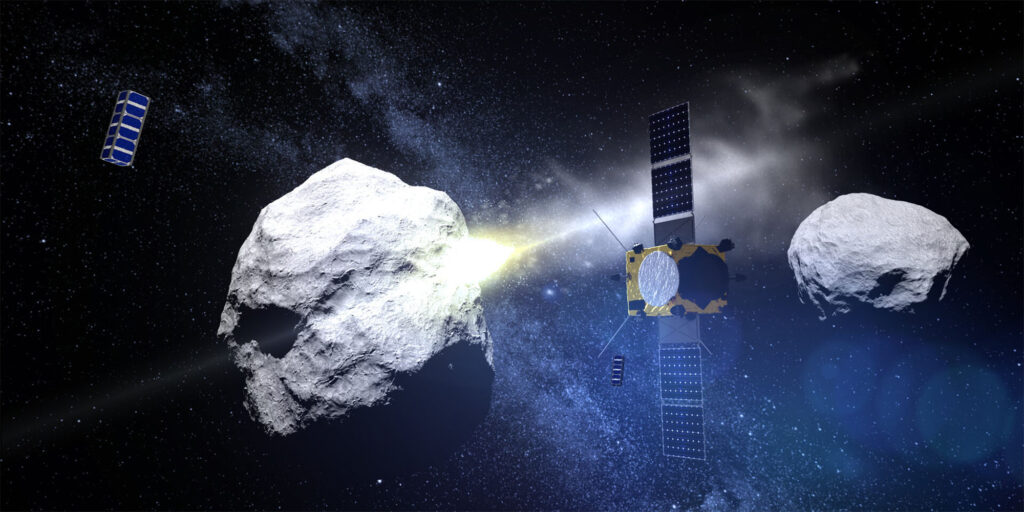Space manufacturing aims to become a key industry for efficiently using Earth orbit and other planets. Companies worldwide are developing robots, 3D printers, and unique technology platforms to capitalize on microgravity conditions and extraterrestrial materials. Some of these systems have already gone into space, while others are planned for launch in the coming years.
The advantages of space manufacturing are not few. Soon, technology will enable it to extract valuable resources from asteroids, produce goods directly in space, and fight space debris. It is assumed that the space environment will make it possible to extract, create and exploit functional materials at a lower cost than on Earth.
Not only enthusiastic developers but also leading analysts and agencies agree with this statement. According to a forecast by ResearchAndMarkets, the In-Space Manufacturing, Servicing, and Transportation market will grow at an average annual growth rate of 17.3% through 2030. The industry will grow fivefold in ten years, from $1.5 billion in 2020 to $7.5 billion by the decade’s end.
Major agencies and companies, including NASA and ESA, have already established relevant programs to develop Space Manufacturing. The space agencies believe that space manufacturing will provide a solution for sustainable, flexible missions through on-demand fabrication, repair, and recycling capabilities for critical systems, habitats, and mission logistics and maintenance. But today, we will discuss several technologies that are developing by startups. Those young companies intend to prove, by their example, that space can be a basis for efficient and reliable business.
Supplying astronauts and space colonizers

One of the first needs to be covered by space manufacturing is the support of space explorers. Shuttle refueling, equipment manufacturing, and food production will allow astronauts to become self-sufficient. This approach will significantly reduce the cost of space missions and could enable more sustainable missions at a reduced price compared to launching all required resources from Earth. American ThinkOrbital and Israeli Aleph Farms are working on implementing related systems.
ThinkOrbital plans to create the New Space economy. The startup’s ThinkPlatfroms ecosystem combines technology to provide a safe environment for servicing, refueling, and in-space manufacturing. ThinkOrbital employees, who previously worked at SpaceX and NASA, want to gradually deploy stations in Earth orbit that will accelerate space exploration. The startup will start with robotic servicing and refueling spaceships and, in the future, will begin building hotels and research laboratories in space.
At the same time, Aleph Farms is going to solve caterpillar issues. The Rehovot-based startup specializes in meat produced by culturing animal cells and cultivation. Aleph Farms became famous in 2019 as the first company to produce meat in space. If the startup can scale its proprietary processes, it can set up a reliable production of meat, independent of climate or availability of natural resources.
Extraction of new resources and production of goods

In addition to producing goods already available on Earth, space manufacturing also offers something new. The effects of microgravity and vacuum allow the production of valuable materials that are much harder to get in planetary conditions. For example, startup Apsidal is developing a Universal Glass Optics Manufacturing Module capable of processing various types of complex glass in space from which fibers, magnetic fibers, super-continuum sources, capillary optics, and adiabatic tapers can be drawn. Such systems will help make specialty fibers for communications, medical diagnostics, remote sensing, X-ray optics, and laser processing.
In addition, space can be a source of new materials for modern industry. Astroforge, a young startup based in Los Angeles, California, works in this area. This company intends to move the mining industry into space. Astroforge is developing a technology to quickly extract materials from asteroids – objects from 20 meters to 1.5 kilometers in diameter. The startup aims to extract six platinum-group metals, including platinum and iridium. These materials can be brought to Earth for use in traditional industries and to support the auto industry, aircraft manufacturing, semiconductors, and other essential industries.
Solving Earth’s problems from space

Besides creating new opportunities, space manufacturing also promises to rid industries of existing bottlenecks. In recent years, aerospace companies have sought to launch as many new satellites as possible for resource monitoring, global Internet coverage, and other purposes. However, the abundance of such projects leads to the fact that it is impossible to launch satellites of all developers quickly, and the Earth’s orbit is clogged with space debris. Startups Dawn Aerospace and Momentus Space believe they can solve these problems.
Dawn Aerospace claims to be developing space transportation for a sustainable future. The startup designs flight architecture that returns different things from space to Earth. According to Dawn, these include old satellites and space debris, goods made in space, super materials, scientific research, and high-value satellites for servicing and repair. In its work, the startup relies on green propulsions and thrusters of its own design.
As for Momentus Space, this startup offers in-space infrastructure services by building transfer and service vehicles that carry satellites and hosted payloads between orbits in space. The startup seeks to help satellite developers who want to put their cargo and satellites into high-precision orbits by using a patented space vehicle. Once the satellites are in orbit, the vehicles are sent to a previously specified location and can be reused later. Momentus expects its robotic-armed vehicles to be able to perform docking and refueling maneuvers and to be suitable for a full range of services in orbit.
We have described only a few startups that aspire to enter the space manufacturing market. Nowadays, more and more ambitious players are appearing in this field, offering their own ways of developing space technologies. One day, when the projects of these enthusiasts are realized, outer space will be one step closer and more accessible to humanity.

